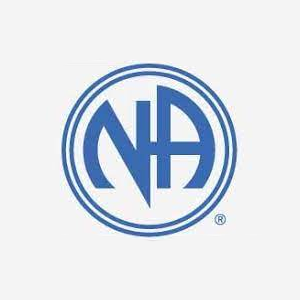Drug & Alcohol Rehab in Scunthorpe

How Does Rehab Work?
Rehab involves many strategies that are created to address individual addiction with support, wellness methods, and steps to restoring mental health. Clients are introduced to addiction treatment programmes that are led by experienced and professional therapists. Along with therapeutic intervention, individuals can benefit from the support received from certified counsellors and group therapy. While free outpatient services do exist, you can not expect the same level of care as those offered privately. If you decide upon an inpatient rehab programme, it requires that you remain inside the centre or the facility for the duration of treatment. Outpatient services are an option for those with less severe drug or alcohol dependencies. You will meet with a counsellor while attending to work commitments and staying at home.
What Happens During Residential Rehab?
The choice to seek rehab for drug and alcohol addiction is a brave one and can be supported with individualised rehabilitation services. We offer a breakdown of what you can expect from the process of drug and alcohol rehab.
Rehabilitation commences with an assessment done by an experienced medical professional. The goal is to investigate your history with substance addiction, and whether pre-existing medical conditions are present. This includes any comorbidities such as mental health disorders that require specialised treatment.
Assessments are followed by alcohol or drug detoxification. Individuals who enter detox will begin withdrawing from substances including alcohol, as the body returns to a normal state of function. This timeline will differ depending on the type of substance used and the length of dependency. Only when the system no longer contains traces of the drug will individuals participate in a treatment plan.
Therapy is an important part of the rehab process and every aspect of addiction treatment must be tailored to address individual backgrounds, addictions, and circumstances. Interventions can range from private counselling and cognitive behavioural therapy to building coping mechanisms, skills, and attending group meetings.
1. Assessment

A medical assessment is performed just before treatment to identify medical history, and alcohol or drug use over time. For those searching for residential treatment, an admissions team will give you a telephone assessment. An assessment by telephone assists the treatment facility deliver a customised treatment package. It also helps medical staff to assist the client during detox.
Should you require the assistance of a medical professional to manage addiction, seek a medical assessment prior to treatment commencing. Assessments are an important part of choosing the right therapy and whether inpatient or outpatient programmes are most suitable for your healthcare goals.
2. Detox

Detox is a process in which substances such as drugs and alcohol are safely removed from the body. It is coordinated by professionals in a residential facility.
The reason medical detoxification from substances is advised is owed to the difficulties and the nature of withdrawal symptoms that may occur during this time. Without reliance on a professional service and medical attention, the risk of relapsing is heightened. Individuals who receive detox and an assessment will be required to participate in a therapeutic programme which involves inpatient rehab or outpatient programmes.
3. Therapy

Therapy involves skill building, coping strategies, and the exploration of the reasons behind addiction. It can be provided in an inpatient or an outpatient programme, each offering its benefit and potential drawbacks.
Step by Step Process for Residential Rehab
To understand your medical and mental health history.
Arrange a suitable date to begin your journey to recovery.
Begin the managed withdrawal process from substances including alcohol.
To understand the root cause of addiction and how to overcome it.
Aftercare is provided to help manage the risk of relapse.
To help heal the wounds that addictive behaviour has caused others.
Find your Nearest Rehab Centre in Scunthorpe
The nearest rehab centre is Addaction Ltd.
Address: Addaction Ltd, Off H M P, Greetwell Rd, Lincoln LN2 4BD, United Kingdom
Call 0333 4444 432 to discuss your alcohol or drug rehab requirements and any other questions you may have about the process of residential rehab.
Outpatient Addiction Services in Scunthorpe
Outpatient addiction services are available for those who do not wish to commit to a residential facility or require a more affordable option for treatment. To help you with the best treatment, we provide a breakdown of outpatient services compared to inpatient care.
An outpatient programme requires you to attend weekly counselling sessions. You stay at home and visit the therapist, counsellor, or group leader to attend sessions. It allows one to continue to work and attend to family commitments while receiving support and intervention.
If you have made a decision that outpatient treatment is an approach you wish to pursue, the next step is to find a professional programme offered by a CQC registered company or charity.
NHS Free Addiction Services in Scunthorpe
The Benefits of Outpatient Services
Private outpatient programmes are tailored to the patient. The purpose is to offer optimal standards of care and intervention for recovery from addiction. – Outpatient care is considered flexible because individuals with families and work commitments can continue to manage these areas of life while attending 1 or 2 therapy sessions per week. – It is also more affordable compared to inpatient rehab services.
The Challenges of Outpatient Services
While one stays at home and takes part in outpatient programmes, they may be at higher risk of relapse due to being exposed to triggers and easy access to drugs or alcohol. Another point to consider is that free outpatient addiction services – offered by the NHS and other UK-based charities – do not provide a bespoke treatment plan and waiting lists are to be expected.

How Much Does Rehab Services Cost in Scunthorpe?
Residential rehab can cost £1500 – £4000 per week. To determine how much other rehab services cost requires a closer look at the services included. Inpatient rehab is the more expensive of the two; however, there are alternative organisations and service providers that include charities offering free addiction treatment services for qualifying individuals.
The NHS and charities such as Turning Point offer free addiction treatment services for those having difficulties with substance and alcohol addiction. It is important to note that Turning Point requires a self-referral. You can also find free support groups offered by Alcoholics Anonymous, Cocaine Anonymous, and Narcotics Anonymous very useful for long term recovery from addiction.
Support Groups in Scunthorpe

Scunthorpe Multi-Mtg Online
Mind Centre, Printers Yard, Fenton St. (nr Bus stn)

We do recover Group
Mind Centre Fenton Street Scunthorpe Lincolnshire DN15 6QX

We do recover Group
Anvil House Dorchester Road Scunthorpe Lincolnshire DN17 1QH
The Pros and Cons of Seeking Treatment in Your Local Area
Pros
1. You are familiar with the area which may provide a layer of comfort/safety.
2. Family or friends can easily travel to visit or are close by.
3. You may save on the costs of travelling long distances for treatment, or free services may only be offered in your home town.
Cons
1. A local environment means access to drug dealers or other triggers. This is more of an issue if you decide upon outpatient programmes.
2. Not considering locations outside your local area could mean a missed opportunities for more valuable and rewarding programmes.
3. Addiction treatment programmes that are close by don’t always provide the best standard of treatment.
In the event you are unsure about a particular addiction treatment service, you can look to the CQC website for more information including a rating of that service.

